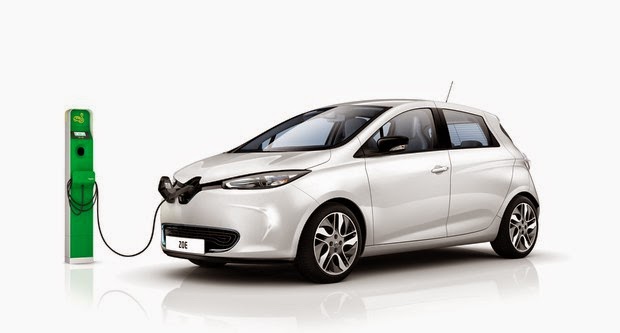Does the death of Better Place mean the failure of the 100% all electric car concept? I don’t think so, but let’s ponder it a bit. Some of the commentators out there will take the Better Place bankruptcy in the same vein as the Solyndra bugaboo that’s circulating in Republican/Conservative circles. An example is the Solyndraization of Tesla Motors attempted by Mitt Romney during the 2012 Presidential elections in the U.S.![]()
Does the Better Place bankruptcy demonstrate the weakness of the business model? Does it mean disaster for electric cars? Does it mean society will abandon the use of electric cars? Will the electric car concept recover from this, and continue on?
I think that
- The project of electric car adoption will continue on.
- That most people will barely notice Better Place going bankrupt.
- That electric cars will survive in the marketplace, and even thrive a few years from now.
- But that in some specific cases there will be people who are devastated by the bankruptcy of Better Place.
- Adoption is likely to primarily focus on plug-in hybrids rather than all electric cars, over the short term.
It may depend on where one is located in. For example, the prospective electric car owners in Israel probably see this a lot differently than do prospective electric car owners in California. The primary target of Better Place was in Israel (and Denmark) so I’m expecting most of the attention on EV’s in Israel to have been focused on Better Place. The result may be that Israeli’s see electric cars as primarily associated with the Better Place model, and see their bankruptcy as a death knell for electric cars in general.
I think that, for most people, their conception of recharging an electric car is to plug into a charging station rather than swap the battery pack. Very few people were exposed to the Better Place model, and the departure of that company won’t faze those who did not know about the company.
Yes, Better Place did do a good job of reaching a group of people who became convinced that fast battery swap was a great idea, and the best solution for electric vehicle adoption. Those people are going to be in shock about this turn of events, I think.
The bankruptcy of Better Place seems, to me, more to do with poor sales and an extra long R&D time before launch of the service. The company took in $1 billion or so of investment capital, took several years to develop the service, and only began selling cars to the public in 2012. Sales were in Israel and Denmark, and came in way below expectations. Bottom line is that the company didn’t garner enough revenue to pay for expenses, and had to fold.
As for the effect on the overall project of electric car adoption, will this have any effect? Will it be disaster for electric cars?
As I said, it seems to me awareness of Better Place is small and that the effect this will have is small. But there is a larger goal which they tried to address, that people seem to want to replicate road trips and are looking for longer driving range and faster recharge and lower cost.
What was the essence of Better Place’s value proposition?
Ultra fast recharge, that would let us do a proper all-electric road trip.
Lower the up-front purchase price, replacing the battery pack purchase with a monthly lease payment.
By the way, some researchers suggest that plug-in hybrid adoption will be predominant during the next few years![]() because of cost, range and recharging time limitations.
because of cost, range and recharging time limitations.
Is precisely replicating the road trip scenario necessary for electric vehicle success? I don’t think so. It is true the more limited the electric car driving range, the more compromises the owner of that car will have to make. More driving range is very useful for electric cars, or else faster charging time. However the majority of driving is around town, well under 70 miles/day.
How often do most people take Road Trips? Some people take frequent long road trips, but as I understand the statistics, long road trips are infrequent for most people.
In short – I believe that an honest 150ish mile electric driving range would be enough to satisfy most of the range anxiety concerns. Couple that with relatively fast charging, say a full recharge in 45 minutes, and you have an electric car that can satisfy 95% or more of driving needs.
Why would such a car see limited adoption? The cars being sold today aren’t all that far from those specs – and those specs are quite achievable with a reduction in battery pack cost.
It is possible to offer a battery pack lease without requiring roboticized fast battery swapping. Renault’s latest electric car, the ZOE, is being sold with a leased battery pack, for example. That fact undercuts one leg of the Better Place value proposition.
The other leg, fast charging, is slowly being undercut by improving fast charging standards.
In summary, — my belief is knowledge about Better Place is weak – and that their main value propositions are being implemented in other ways. Shortly we’ll have forgotten about Better Place because they’ll have become irrelevant.
- Highway design could decrease death and injury risk, if “we” chose smarter designs - March 28, 2015
- GM really did trademark “range anxiety”, only later to abandon that mark - March 25, 2015
- US Government releases new regulations on hydraulic fracturing, that some call “toothless” - March 20, 2015
- Tesla Motors magic pill to solve range anxiety doesn’t quite instill range confidence - March 19, 2015
- Update on Galena IL oil train – 21 cars involved, which were the supposedly safer CP1232 design - March 7, 2015
- Another oil bomb train – why are they shipping crude oil by train? – Symptoms of fossil fuel addiction - March 6, 2015
- Chevron relinquishes fracking in Romania, as part of broader pull-out from Eastern European fracking operations - February 22, 2015
- Answer anti- electric car articles with truth and pride – truth outshines all distortions - February 19, 2015
- Apple taking big risk on developing a car? Please, Apple, don’t go there! - February 16, 2015
- Toyota, Nissan, Honda working on Japanese fuel cell infrastructure for Japanese government - February 12, 2015















